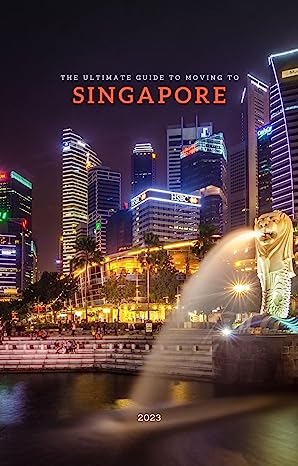Gambling in Singapore is a well-regulated activity with specific laws in place to govern various forms of betting. Locals and tourists alike can participate in sanctioned gaming activities within the city-state. Casinos, lotteries, and sports betting are the primary legal gambling avenues available. Despite the existence of integrated resorts such as Marina Bay Sands and Resorts World Sentosa, which feature casinos, Singapore maintains strict control over local gambling to mitigate potential social issues.
For residents of Singapore, the barriers to entry for gambling are purposefully high. A significant levy is imposed on locals who wish to enter the casinos, serving as a deterrent to frequent gambling. Additionally, local legislation criminalises underage gambling, with the minimum legal age set for different gambling activities. While Singapore Pools offers a legal outlet for sports betting and lottery games, the minimum age for participation is 18 years.
Understanding the intricate regulations governing gambling in Singapore is crucial for both visitors and residents who wish to engage in such activities. Recent legislative changes, such as the Gambling Control Act 2022, reflect Singapore’s ongoing efforts to address emerging trends and ensure a consistent regulatory framework. Online gambling has its own set of rules with authorised operators, indicating the country’s proactive approach to managing the digital evolution of betting activities.
Gambling Opportunities in Singapore
In Singapore, residents and visitors have access to a variety of legal gambling activities, from the glamour of physical casinos to the convenience of state-run lotteries and the evolving landscape of online betting platforms.
Casinos and Integrated Resorts
Singapore is home to two Integrated Resorts, Marina Bay Sands and Resorts World Sentosa, which boast world-class casinos. These establishments, regulated by the Casino Regulatory Authority, contribute significantly to the nation’s revenue and are licensed to operate various gambling services. Visitors can engage in games such as blackjack, roulette, and baccarat, as well as a vast collection of slot machines.
It should be noted that while there is an entrance fee for locals, foreigners can enter Marina Bay Sands casinos free of charge.
Singapore Pools and Lottery
For those interested in lottery-style gambling, Singapore Pools offers a range of legal gambling products. This includes popular local lottery games like 4D and Toto, as well as sports betting on events like football matches and motor racing. They maintain their operations following the Remote Gambling Act, which ensures their practices are technology-neutral and uphold the necessary licensing and regulatory standards.
Online and Offshore Casinos
While online gambling in Singapore remains tightly controlled, there are licensed operators, like Singapore Pools, that provide online betting services legally. Alternatively, engaging with offshore casinos might offer additional tax-free income opportunities, especially for those skilled in casino games or sports betting.
Private and Social Gambling Venues
Social gambling in private settings is permitted within certain parameters. These private games must be non-commercial, occur in personal residences, and involve friends or family. Social gambling in public places, including hotels, is prohibited, as is any online social gambling activity.
Emerging Gambling Technologies
Singapore’s gambling landscape is observing the advent of newer technologies that include but are not limited to online platforms. Although purchasing virtual loot boxes in video games does not typically constitute gambling due to the lack of real-world payouts, the landscape is ever-changing, and any real-world value exchange could deem such activities as gambling.
The gambling environment in Singapore is thus well-regulated, offering a range of legal opportunities for those wishing to partake, while simultaneously maintaining strict guidelines to prevent unlawful activities and protect the public.
Legal Framework of Gambling in Singapore
Singapore maintains a robust and clearly defined legal framework to regulate gambling activities within its borders, ensuring that the industry operates responsibly and is free from criminal influence. Laws are strictly enforced and public education is prioritised to protect vulnerable individuals.
Gambling Laws and Regulations
The backbone of Singapore’s gambling regulatory system is founded on several key acts including the Betting Act (BA) and Common Gaming Houses Act (CGHA), effective since 1960 and 1961 respectively. These acts criminalise unauthorised gambling activities in physical spaces. The Remote Gambling Act (RGA) of 2014 was repealed on 1 August 2022, with the reconstitution of the Gambling Regulatory Authority from the Casino Regulatory Authority.
The Role of the Gambling Regulatory Authority
At the centre of Singapore’s gambling regulation is the Gambling Regulatory Authority (GRA), a statutory board under the Ministry of Home Affairs formed on 1 August 2022, which took over the responsibilities of the Casino Regulatory Authority (CRA). The GRA enforces the gambling laws and ensures that operators adhere to strict standards to keep gambling honest and prevent harm.
Licensing Regimes and the Singapore Police Force
The licensing of gambling is a critical aspect of Singapore’s control strategy, subject to stringent criteria to prevent unlawful activities. This complements the Singapore Police Force‘s efforts to enforce regulations on a societal level, focusing on combatting syndicated gambling activities.
The Betting and Casino Control Acts
Two significant pieces of legislation, the Casino Control Act (CCA) of 2006 and the Betting Act, govern the operations of casinos and betting activities. The CCA primarily presides over the regulation of casinos, while the Betting Act focuses on other betting activities. Recent enhancements to this legal structure are encapsulated in the Gambling Regulatory Authority of Singapore Act and the Gambling Control Act of 2022, which reflect the evolving landscape of gambling regulation in Singapore.
Protective Measures and Responsible Gambling
Singapore has established a robust framework focused on responsible gambling and protective measures to safeguard the local population. This includes various programmes and regulations designed to provide help to those in need and to prevent problem gambling behaviours.
National Council on Problem Gambling
The National Council on Problem Gambling (NCPG) plays a pivotal role in Singapore’s approach to addressing gambling-related issues. It develops and implements public education campaigns to minimise the negative impacts of gambling. Furthermore, the NCPG is instrumental in offering assistance and counselling services for individuals affected by gambling problems.
Social Safeguards and Exclusions
A multi-tier system of social safeguards has been set up to promote responsible gambling behaviours. The Ministry of Social and Family Development, in conjunction with the Gambling Regulatory Authority of Singapore, oversees the enforcement of these measures. They include self-exclusion programmes, family exclusion orders, and casino visit limits, which are imposed to help excluded individuals and those at risk maintain control over their gambling habits.
Underage and Problem Gambling Prevention
To combat underage gambling, the Gambling Control Act 2022 has increased the legal gambling age for certain gambling products, making it a criminal offence for underage individuals to engage in gambling activities. Specialist tools and education are also in place to identify and prevent potential cases of problem gambling among all age groups. Stringent laws, like the Common Gaming Houses Act, provide a legal framework to ensure the gambling environment in Singapore remains a lower-risk zone with a focus on preventing access to unregulated gambling products, including mystery boxes.
By implementing rigorous legal structures and support systems, Singapore aims to maintain a balanced approach to gambling, allowing for recreational entertainment while mitigating the risks associated with gambling addiction and other related social issues.
Enforcement and Control of Illegal Gambling
Singapore takes a firm stance against illegal gambling activities, employing a comprehensive legal framework and enforcement measures to deter and penalise offenders. The approach focuses on utilising advanced technology and enforcement agencies like the Singapore Police Force to maintain the integrity of its gambling laws.
Illegal Gambling and Offenders
In Singapore, individuals participating in illegal gambling activities are subject to strict legal consequences. The law clearly defines illegal gambling and outlines the penalties for both participants and those operating illegal gambling dens. Whether it is through physical or virtual means, engaging in unauthorised gambling is an offence that regulatory bodies actively pursue.
Online Social Gambling and Proxy Gambling
With technology’s advancement, online social gambling and proxy gambling, where bets are placed on behalf of individuals not physically present, have emerged as significant issues. Singaporean authorities recognise the complexities these digital platforms present and have adapted their enforcement tactics accordingly. Laws are in place to penalise those involved in such activities, including the agents facilitating these forms of gambling.
Enforcement by the Singapore Police Force and Regulatory Bodies
The Singapore Police Force and various regulatory bodies are at the forefront of the battle against illegal gambling. They employ state-of-the-art surveillance and cybersecurity measures to monitor, detect, and disrupt illegal gambling operations. There is a coordinated effort to clamp down on syndicates and individuals who attempt to evade the law, with these agencies empowered to execute raids, seize assets, and make arrests in the enforcement of gambling-related legislation.
Frequently Asked Questions
This section addresses common queries regarding gambling regulations and practices that are specific to Singaporean residents, with a focus on the legal frameworks and age restrictions.
What are the regulations for social gambling among Singaporean residents?
In Singapore, social gambling is permissible when conducted in private, such as homes, and not as a habitual practice. The Gambling Control Act 2022 delineates conditions under which such activities are considered legal.
What constitutes illegal gambling activities in Singapore?
Illegal gambling in Singapore includes participating in or operating a public gaming house without authorisation, online gambling on unauthorized platforms, and underaged betting. These activities are strictly prohibited by the country’s gambling regulations.
At what age is a person legally permitted to gamble in Singapore?
An individual must be at least 21 years of age to engage in most legal gambling activities, with the exception of state-run lotteries like Singapore Pools, which allows participants from the age of 18.
How does the Remote Gambling Act affect gambling activities in Singapore?
The Remote Gambling Act confers authority to regulate all forms of gambling conducted via telecommunications technology and the internet.
What is the legal status of using bookmakers within Singapore’s jurisdiction?
Use of bookmakers in Singapore is illegal unless the entity is specifically authorized by the government. The Gambling Regulatory Authority oversees and enforces strict regulations against unauthorized bookmaking.




